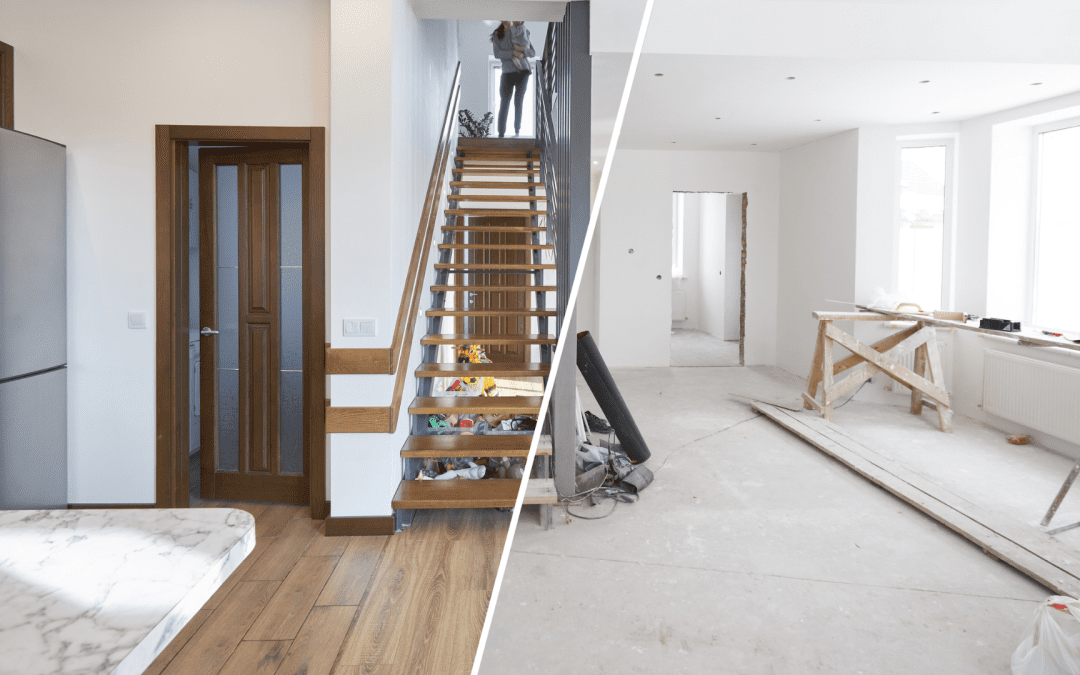20 Smart ways to save money when renovating a house
Renovating a house can be an exciting yet daunting task, especially when it comes to managing costs. From updating kitchens to refreshing bathrooms or even transforming entire living spaces, the expenses can quickly add up. However, with careful planning and savvy decision-making, it’s possible to achieve your renovation goals without breaking the bank. Here are 20 practical tips to help you save money when renovating a house in the UK.
Set a realistic budget: Before diving into any renovation project, establish a clear budget outlining how much you’re willing to spend. Having a realistic budget will help you prioritize expenses and avoid overspending.
Plan ahead: Proper planning is key to saving money. Take the time to research materials, labour costs, and potential discounts before starting your renovation project.
Do It Yourself (DIY): Whenever possible, tackle simple tasks yourself, such as painting, minor repairs, or even installing fixtures. DIY can save you a significant amount on labour costs.
Shop around for materials: Don’t settle for the first quote you receive. Compare prices from different suppliers to find the best deals on materials like flooring, tiles, and fittings.
Consider second-hand or reclaimed materials: Explore salvage yards, online marketplaces, or community recycling centres for affordable second-hand materials that can add character to your renovation while saving you money.
Focus on high-impact areas: Instead of renovating every room in the house, prioritise high-impact areas like the kitchen or bathroom. Updating these spaces can enhance the overall look and feel of your home without breaking the bank.
Reuse existing features: If possible, salvage and repurpose existing fixtures, fittings, or furniture rather than replacing them entirely. Refinishing or painting old cabinets and doors can give them a new lease on life at a fraction of the cost.
Rent tools instead of buying: Avoid the expense of purchasing specialised tools by renting them for the duration of your renovation project. This way, you’ll have access to the equipment you need without the long-term commitment.
Negotiate with contractors: Don’t hesitate to negotiate with contractors to secure competitive rates for their services. Obtain multiple quotes and discuss ways to streamline the project to save both time and money.
Opt for off-peak renovation: Consider scheduling your renovation during off-peak seasons when contractors may offer discounted rates due to lower demand. This can help stretch your budget further.
Avoid structural changes: Minimise structural alterations whenever possible, as they tend to be the most expensive aspect of a renovation. Stick to cosmetic upgrades that have a significant impact without requiring major construction work.
Keep design simple: While intricate designs may be appealing, they often come with a hefty price tag. Opt for simple, timeless designs that are cost-effective to implement and won’t go out of style quickly.
Maximise natural light: Enhance your home’s natural lighting by strategically placing windows or skylights. This can reduce the need for artificial lighting during the day, saving you money on electricity bills in the long run.
Energy-efficient upgrades: Invest in energy-efficient appliances, lighting, and insulation to lower utility bills and reduce your home’s environmental footprint over time. Many energy-efficient upgrades also qualify for government incentives or rebates.
Bulk buying: Purchase materials in bulk whenever possible to take advantage of volume discounts offered by suppliers. This approach can help you save money per unit and reduce overall expenses.
Stay flexible with designs: Be open to alternative materials or design options that offer similar aesthetics at a lower cost. Flexibility in your renovation plans can lead to significant savings without compromising quality.
DIY cleaning and demolition: Save on labour costs by handling cleaning and demolition tasks yourself before the renovation begins. Clearing out old fixtures, debris, and clutter can streamline the project and reduce expenses.
Reuse packaging materials: Save money on packing materials by repurposing boxes, bubble wrap, and packing peanuts from deliveries or previous moves. This eco-friendly approach not only saves money but also reduces waste.
Monitor expenses closely: Keep track of your renovation expenses to ensure you stay within budget. Use spreadsheets or budgeting apps to monitor spending and identify areas where you can cut costs if necessary.
Patience is key: Finally, remember that Rome wasn’t built in a day. Renovating a house takes time, so be patient and avoid rushing into decisions that could result in costly mistakes. Take the time to plan, budget, and execute your renovation carefully for the best results.
In conclusion, renovating a house doesn’t have to be a financial burden. By implementing these 20 money-saving tips, you can achieve your renovation goals while staying within budget. Whether you’re updating a single room or transforming your entire home, smart planning, DIY efforts, and strategic decision-making can help you save money and create the home of your dreams. elements, you can transform your home into a comfortable, stylish space that stands the test of time.
If you’re based around Cheltenham, Gloucester, or surrounding areas, we at PSK would love the opportunity to help you with your building project. Get in contact today.

